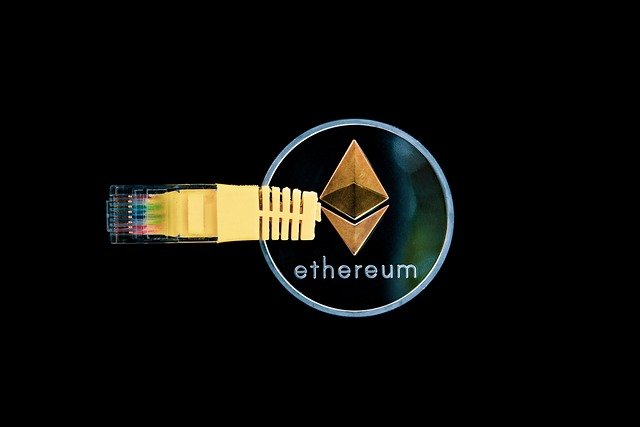"Exploring the Potential of Ethereum: A Comprehensive Overview of the Decentralized Platform and its Applications"
Ethereum is a decentralized, open-source blockchain platform that enables the creation of smart contracts and decentralized applications (dApps). The platform was first proposed in 2013 by Vitalik Buterin, a programmer and cryptocurrency researcher. Ethereum has since become one of the most popular blockchain platforms, and it is often compared to Bitcoin, the first decentralized cryptocurrency.

One of the key differences between Ethereum and Bitcoin is the scope of their capabilities. While Bitcoin was designed as a decentralized digital currency, Ethereum was created to be a platform for decentralized applications. This means that Ethereum enables developers to build and deploy dApps on its blockchain, while Bitcoin only enables the creation of decentralized currency transactions.
Smart contracts are one of the most important features of Ethereum. These are self-executing contracts with the terms of the agreement between buyer and seller being directly written into lines of code. Smart contracts allow for the automation of complex processes, such as the transfer of funds, without the need for intermediaries. This reduces the risk of fraud and the cost of transactions, making smart contracts a promising solution for many industries.
Another major difference between Ethereum and Bitcoin is the way they handle transactions. Bitcoin uses a proof-of-work (PoW) consensus algorithm, which requires miners to solve complex mathematical problems in order to validate transactions and add them to the blockchain. This process is energy-intensive and can lead to centralization, as the mining power is concentrated in the hands of a few large mining pools.
Ethereum, on the other hand, is in the process of transitioning from a PoW consensus algorithm to a proof-of-stake (PoS) algorithm, which is more energy-efficient and secure. In a PoS system, validators are selected randomly to validate transactions, and they are required to put up a stake of ether as collateral. This reduces the energy consumption of the network and makes it more resistant to 51% of attacks.
Ethereum has a wide range of applications, including finance, supply chain management, gaming, and more. For example, decentralized finance (DeFi) platforms have been built on Ethereum, allowing users to access financial services without the need for intermediaries. These platforms provide a range of services, including lending, borrowing, and trading, and they are often able to offer higher yields and lower fees compared to traditional finance.
Another important use case for Ethereum is the creation of non-fungible tokens (NFTs). NFTs are unique digital assets that can represent ownership of a range of items, including art, music, and collectibles. The use of NFTs on the Ethereum blockchain has gained popularity in recent years, with many high-profile sales taking place. For example, a digital artwork by the artist Beeple sold for $69 million in a Christie's auction in March 2021, marking the first time that a purely digital artwork had sold for such a high price.
Despite its popularity and potential, Ethereum is not without its challenges. Scalability is one of the biggest challenges facing the Ethereum network. As the number of apps and users grows, the network can become congested, leading to slow transaction times and high fees. The Ethereum community is working on several solutions to address these issues, including the transition to a PoS consensus algorithm and the implementation of sharding, which will allow the network to process more transactions simultaneously.
Another challenge facing Ethereum is security. As the value of ether has increased, the network has become an attractive target for hackers and other malicious actors. While the Ethereum network has been relatively secure so far, it is important for users and developers to be aware of the potential risks and take appropriate steps to secure their assets.
wide range of applications and a large and growing community of developers, users, and businesses. Its ability to enable the creation of smart contracts and decentralized applications has the potential to disrupt many industries and revolutionize the way we interact with technology and with each other. Despite its challenges, Ethereum is well-positioned to play a significant role in the future of blockchain and decentralized technologies, and it will be exciting to see what new innovations and applications emerge in the years to come.